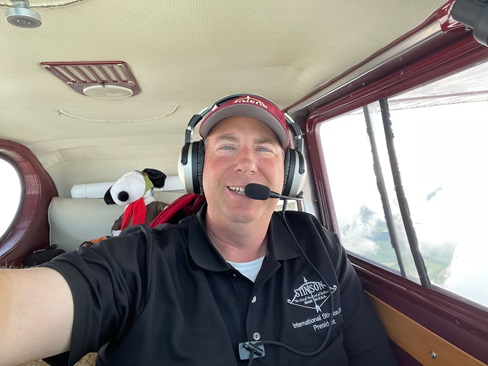Mr. Christopher Bertram
Federal Aviation Administration
800 Independence Avenue, SW
Washington, DC 20591
Dear Mr. Bertram:
This letter is following up on our meeting last Wednesday on the Federal Aviation Administration (FAA) "A-76" study of the flight service station (FSS) program. As you know, the Office of Management and Budget (OMB) published Circular No. A-76 to provide guidance for determining whether current government-provided services (i.e., flight service stations) should continue to be provided in-house, through commercial sources or contracts, or through interservice support agreements. It is important to note that the A-76 process is not designed to simply contract out a government-provided service, such as FSS, but is intended to ensure that the government "get its money's worth" by following a business model for better management of its programs.
AOPA supports sound decisions that maintain or enhance safety benefits for aviation users and improves the management of government programs. AOPA believes that the provision of aviation weather services is a critical safety function that must be provided by the government. These services must not be fee based or privatized. AOPA would actively oppose any action that would remove responsibility for providing flight services from the federal government. However, this does not preclude the possibility of contracting out these services.
With this fundamental principle in mind, I request that the FAA allow AOPA the opportunity to participate in the establishment of the performance work statement (PWS) that describes the functions and requirements for FSSs.
AOPA's primary role in the PWS development would be to ensure that the FSS A-76 study establishes a comprehensive standard for providing flight services (with the government retaining full responsibility for providing the service). With over 387,000 pilot members, it is appropriate that the association play a key role in identifying general aviation requirements related to aviation weather services, notams, and other safety functions performed by FSSs.
Unfortunately, the current FSS system is in a state of decline and disrepair. It relies on obsolete 1970s computer technology that no longer meets today's operational requirements. Compounding the problem is the fact that current modernization plans are behind schedule and over budget. Without significant changes and a serious effort to explore opportunities for efficiency, reduction of system redundancies, and elimination of outmoded products and processes, pilots will experience a degradation of FSS-provided service while costs for providing the service will rise.
AOPA is committed to working to ensure that the FAA's A-76 study of FSS looks at alternatives for providing modernized flight services to pilots with the government still retaining the ultimate responsibility for providing the service.
Sincerely,
![]()
Andrew V. Cebula
Senior Vice President
November 12, 2002

